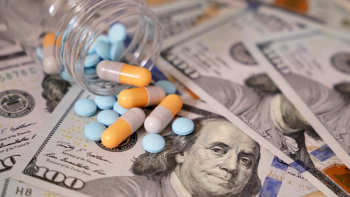
A Pricing Revolution: The State Offensive
The second of two articles summarizing the broad range of government efforts to control drug pricing focuses on state government efforts.
In the second of two articles (based on the white paper, The Pricing Revolution: Pharma is bracing for the future) summarizing the broad range of government efforts to control drug pricing, Rick Kelly and Jamie Van Iderstine focus on state government efforts.
Challenges on drug pricing are now coming from all angles. In addition to the variety of federal government proposals described in the last article, there has been a dramatic increase in state-sponsored bills over the last few years to address various aspects of drug pricing. Numerous states have passed laws related to volume purchasing, affordability review, price gouging, and/or coupons/cost sharing. While few of these bills have been signed into law, and many may experience significant pushback from both pharma companies and consumers, their potential implications need to be understood and planned for. This section will describe each of the bills (indicated by bill number), for each state.
Volume purchasing
These bills direct various state departments or committees and/or external expert panels to define a list of target drugs for price negotiation. Pooling of drug purchasing by state departments and/or among neighboring states would increase negotiating power with pharma companies.
Following are the elements of the bills, and the states in which they are under consideration:
- Pooling buying power with other states (CA)
- Drug value assessment (DE, IL)
- Integration of state departments for best practices (IL)
- Creation of a list of target drugs for negotiation (IL, NJ)
- Commission to evaluate purchasing possibilities (MA)
- Authorization to negotiate with manufacturers (MN, NJ)
Affordability review
Nine states (IL, MO, AZ, NJ, RI, MA, PA, VT, and VA) have proposed legislation that would establish a Prescription Drug Affordability Board to evaluate the affordability of drugs and implement efforts to lower their cost. Most of the states’ bills have many elements in common, with a few exceptions. Both the elements and the state-specific exceptions are listed below:
- ID drugs with a price increase above a designated limit (except IL)
- Compile a list of biosimilars with a launch WAC that is not lower than the reference brand (except MO, VA)
- ID brands that have a launch WAC over a designated limit
- ID generics with a WAC increase of a set amount or more
- Conduct an affordability review for each identified drug and establish an upper-payment limit
Beyond these proposed Prescription Drug Affordability Boards, the following states included additional drug affordability elements in their bills.
Massachusetts: MA S-706 would permit the Secretary of Health and Human Services to negotiate supplemental rebate agreements directly with manufacturers. In cases where an agreement is not reached, the Secretary could impose a penalty.
Missouri: HB 1910 would require drug manufacturers to notify the Drug Cost Review commission if they have filed a new drug application or biologics/biosimilars application. In certain circumstances, the commission would establish the level of payer reimbursement.
New Hampshire: SB 687 would empower the Affordability Board to implement, if needed, the following strategies to reduce costs: negotiating specific rebate amounts on drugs that contribute most to spending and exceed the targets; changing a formulary when sufficient rebates cannot be secured; establishing a common formulary for all public payers; and/or bulk purchasing through a single purchasing agreement.
New Jersey: Affordability bills (S 1066/A 2418) would authorize the Board to consider options being used in other states to lower the list price of drugs. These may include using a reverse-auction marketplace, allowing importation from other countries, or implementing bulk purchasing processes.
Price gouging
These legislative approaches to managing drug prices are more direct. They specifically forbid pharma companies from charging excessive prices (as defined by the state) and, in some cases, include punitive measures if prices are exorbitant.
Following are the elements of the bills, and the states in which they are under consideration:
- Prohibiting manufacturers from charging excessive prices or increases in WAC (MI, NY)
- Requiring Attorney General to investigate price gouging allegations (MI)
- Prohibiting excessive price increases for an essential off-patent or generic drug (NJ)
- Prohibiting a price that is greater than that charged in other developed countries (NJ)
- Requiring a manufacturer to inform the state if the WAC of a drug is increased more than 100% in one year (NY)
Addressing manufacturer coupons
These proposed laws would ensure that manufacturer copay cards and coupons benefit patients without inappropriately increasing the use of expensive brands. The primary focus is to ensure that neither payer or manufacturer programs drive use of a brand when a generic is available. In some cases, multiple bills with similar elements have been introduced and they will need to be reconciled into one bill through the legislative process.
Following are the elements of the bills, and the states in which they are under consideration:
- Prohibiting the use of copay accumulators (CT, NY)
- Requiring health plans to include at least one low-cost generic drug or biosimilar on their formulary (ME)
- Prohibiting more restrictive coverage of a generic or biosimilar than the covered reference product (ME)
- Prohibiting use of drug manufacturers’ coupons to cover copayments or deductibles if a lower-cost generic is covered (NH)
- Prohibiting coupons except for branded drugs without a generic (NH)
- Prohibiting coupons if active ingredients of the drug are contained in OTC products (NH)
- If a coupon is advertised, requiring a manufacturer to indicate a generic is available at a lower price (RI)
Impact on pharma
States are increasingly intent upon passing legislation aimed at lowering drug prices. These legislative initiatives target different areas, ranging from drug pricing transparency to an affordability review aimed at reducing costs. Should these laws go into effect, prices would be affected enough to significantly impact revenue. Pharmaceutical manufacturers should actively engage state governments to ensure that the manufacturer’s point of view is considered by decision-makers.
Taken together, these actions and proposals have surrounded pharma with a daunting web of real and potential controls that threaten to significantly undermine profitability. And these are only the state level efforts.
At the federal level, The Centers for Medicare & Medicaid (CMS), the President, and Congress have all proposed significant policy changes and/or laws that could have revolutionary implications for pharmaceutical manufacturers. Some of the proposals could result in enhanced negotiating power for Medicare plans, elimination of rebates as a means of competition within Medicare, importation of certain prescription drugs, tying Medicare drug prices to those of other developed countries, and requiring Medicare to negotiate for certain drugs.
The time is now for pharmaceutical manufacturers to plan for—and implement—alternative approaches and counter-controls to address this new (and continuing) dynamic. The good news is that there are multiple levers to pull to support this effort given the complexity of pharmaceutical pricing and contracting. Strategic approaches to consider include:
- Shifting market access focus to drive increased volume. Aggressive payer engagement can break down barriers to access and make it easier for physicians to prescribe the products they believe are best for their patients. In many cases, aggressive payer engagement can also significantly increase utilization in situations where products become preferred over others. This approach can pave the way for a substantial escalation in script volume and corresponding revenue. Critical to the success of this approach, is a robust physician pull through strategy, by which access is communicated at the local level, driving confidence in prescribing.
- Optimizing channel strategy. In tandem with the above strategy, it is critical to understand the profitability associated with each type of payer channel in order to be purposeful about which are most “critical to win” (where a company may be more willing to provide higher rebates), versus which are more likely to support financial objectives. This approach would allow manufacturers to focus their commercial efforts more efficiently.
- Balancing the scales of drug pricing, globally. Global drug pricing is changing rapidly, with influence across borders, in ways we have never seen before. Pharmaceutical companies must keep abreast of the global implications and ongoing scrutiny of drug pricing across geographies.
- Eliminating unnecessary drains on gross-to-net. More stakeholders within pharmaceutical companies need to understand all the different components putting unfavorable pressure on gross-to-net. To succeed in this new environment, companies should look for opportunities to eliminate unnecessary “middle men” who may be capturing portions of rebates.
- Continuing to build the body of evidence. It is most important that pharmaceutical companies continue to innovate, as well as prove the value of that innovation—not only in the clinical trial setting, but also in the real world. Price pressures can be offset when: 1) products are driving value in the market, and 2) payers (and society) are realizing the cost-offset benefits related to improved clinical outcomes. The pharmaceutical industry contains some of the brightest people in the world; it must continue to apply that talent and expertise to create value—and communicate it.
Bottom line: With the pricing revolution in full force, the moment has come to brace for impact and take action.
Rick Kelly, RPH, MHA, Cyan Health and Jamie Van Iderstine, Cyan Health.
Newsletter
Lead with insight with the Pharmaceutical Executive newsletter, featuring strategic analysis, leadership trends, and market intelligence for biopharma decision-makers.




